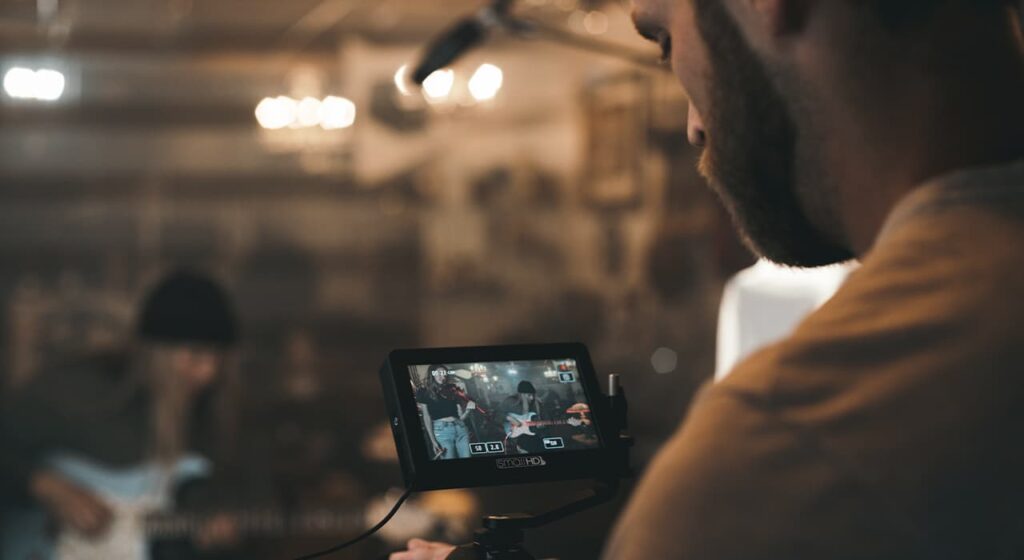WHAT YOU’LL GET IN THE COURSE
Understand how to promote a film you’ve already made
Learn how to come up with an idea for a film and write a quality script
Understand how to finance a film
Learn how to cast and work with actors
Learn how to manage the shooting process
You’ll understand from the master’s cases how comedy and drama work are different.
COURSE PROGRAMME
Introduction – Introductory Lesson
Lesson 1
How to work with motivation. The choice of profession and education.
The Two Trends in Filmmaking – How to form your own approach to the profession – 5 tips on finding your own style
Lesson 2
How to Develop a Film Idea and Concept
Trends and Audience: What to Focus On – Tips for Choosing an Idea – Main Rule for a Good Story
Lesson 3
How to create a hero
5 tips: how to form a hero – Single hero and collective hero: how to create believable characters – A hero of our time: who is he
Lesson 4
How to write a screenplay
Key elements of a screenplay – 3 taboos for a screenwriter – 2 questions to check a screenplay for quality – 8 tips for creating a screenplay
Lesson 5
How to adapt a literary work into film
How to avoid elements of “literaryness” in film – Changing dialogues in screenwriting – 3 tips for adapting a screenplay
Lesson 6
How to work with the producer and plan the budget
How to finance a film: where and how to look for money – strategies for communicating with the producers – A look at shooting without a budget: how to motivate the participants of the shooting process – how to lighten the budget by “guerrilla cinematography” – 7 tips for working with producers
Lesson 7
How to interact with actors
Conducting a casting – Reading a script – How to set up an actor on stage
Lesson 8
How to organize and conduct a shooting
The composition of the master team and the tasks of participants – 10 tips on arranging the day of filming – How to work with light – Working with the cameraman – Editing director as an obligatory figure on the set
Lesson 9.
How to Direct Dramas. Experience with the film “Text.”
5 rules on directing drama – Shaping the space and immersing the viewer in a new world – Rules for shooting explicit and violent scenes
Lesson 10
How to Direct Comedies. The experience of directing a film
5 rules for directing comedy – Humor in a picture: how to maintain a balance of funny and serious – How to create a “folk” comedy – Creating a comedy character
Lesson 11
How to edit and find a musical solution to the movie
5 rules for editing – How to save a scene in montage – 2 rules for working with a composer – Musical theme as an element of dramaturgy
Lesson 12
What the director does after the film is released. Release and commerce
Director’s responsibility for the results – 5 rules for the director after the film’s release – Creating a trailer – How a director can influence a successful PR campaign for a picture
Lesson 13
Conclusion
